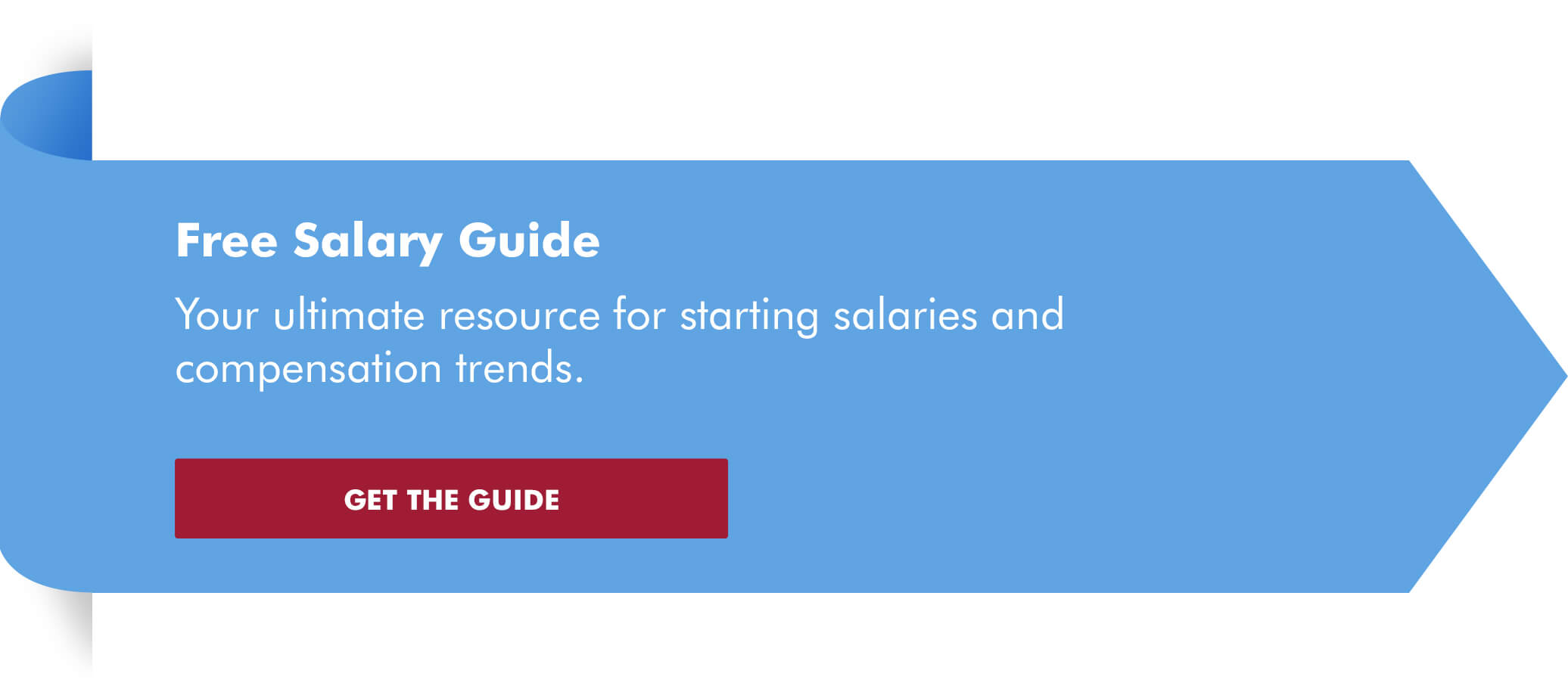When comparing job offers, salary is, of course, a top consideration. But your decision to accept a position shouldn’t be based solely on money. A solid employee benefits package can — and should — be a critical factor in your deliberation as well. Knowing how to understand the employee benefits and perks being offered is critical to making an informed decision
Candidates are sometimes hesitant to bring up company benefits with a potential employer, assuming they’ll just get what they get once they join the organization. And some job seekers don’t even realize that they might be able to negotiate the employee benefits package during the hiring process.
It’s well worth your time to ask about benefits and perks, though. Leading businesses know these offerings can play a significant role in their ability to attract and retain top talent. And if you’re a candidate with in-demand skills, you may find an employer is prepared to talk details about how they could tailor a benefits package that meets your needs and expectations.
Following are a few questions that can help you with better understanding employee benefits, so you can be well-prepared to have this important conversation with a hiring manager:
When should I ask about a company’s benefits package?
The short answer is, “Not during the first interview.” Discuss salary and benefits at the initial interview stage only if the hiring manager or HR representative brings up the subject.
The second interview or job offer stage is usually a more appropriate time to ask for specifics about the company benefits package — if the employer hasn’t broached the subject already.
What are good questions to ask about employee benefits?
If you don’t know going into the interview whether the employer offers traditional benefits like health care coverage and retirement savings, you may want to ask about these items first:
- Does the company offer health care coverage, and what does it include? Many employers offer medical, dental and vision insurance. Some companies pair health insurance with a health savings account or flexible spending account. Others provide a reimbursement arrangement as a substitute to health insurance. These health benefits are tax-free for employees. (Note that policies vary by employer. For example, the length of time it takes for coverage to begin after an employee’s hire date may differ among companies.)
- What type of retirement savings plan is available to employees? Most leading employers provide a voluntary 401(k) or similar plan to their workers. Some organizations also match a certain percentage of employees’ contributions.
What other employee benefits and perks should l look for?
You may want to ask about flexible work schedules and remote work options, depending on the type of work you do. Flexible and remote work became more common during the response to COVID-19, but many companies continue to see an upside in making flexible and remote work standard offerings.
In a Robert Half survey of senior managers and HR managers in the United States conducted for the 2024 Salary Guide, 78% of respondents said their organization is offering flexible work schedules to employees — and 77% of workers in the survey said they want flexible work schedules.
Additionally, 70% of management respondents said their organization offered remote work options, with 63% of workers surveyed identifying the option to work remotely as a perk they’d like to have.
Here are some other benefits you might want to ask about:
- Life insurance — For numerous job candidates and employees, particularly those with a spouse and children, life insurance is a must-have benefit. You’ll find most employers do provide basic life insurance and the option to purchase extended coverage.
- Paid time off (PTO) — PTO generally includes paid vacation and sick time. Two weeks is typically the standard amount of PTO available to new hires. Some employers allocate vacation and sick hours separately. Others combine them into one PTO bank, allowing employees to take PTO for any reason, up to the total hours allotted for the year. Depending on where you work, you also may be entitled to paid sick or family leave.
- Professional development and/or tuition reimbursement — Many employers deliver learning and career development opportunities, such as job-specific training provided online. If you’re hoping to go back to school to complete your bachelor’s or obtain an advanced degree, tuition reimbursement or tuition assistance can save you considerable money. Essentially, your employer pays your school fees, provided your classes are work-related and you maintain a specific GPA, as defined by the company. Larger, more-established organizations typically offer this benefit.
- EAP — EAPs are designed to help employees overcome personal issues that might interfere with their job responsibilities and productivity. For example, employees with work or personal problems, such as substance abuse, marital discord or mental health issues, can access qualified counselors through the EAP. These counseling services are confidential.
What perks are nice to have?
Perks are an area where employers often get creative. For example, one trend on the rise is paid time off for volunteering. A Robert Half survey found that 59% of U.S. employers plan to offer this option to their workforce in 2024, up from 34% in 2019.
Other examples of nice-to-have perks include:
- Paid parental leave — This perk lets employees earn a wage and pursue their career goals while caring for a newborn or newly adopted child. And this year, 72% of U.S. employers intend to offer this perk to their workers, according to Robert Half research.
- Remote work business allowances — This perk helps remote workers offset expenses for supplies and equipment they use while working outside of a shared office.
- Reimbursements and discounts — These perks may include reimbursements for business-related expenses and company-exclusive discounts on big-ticket purchases, from cars and homes to smartphones and home security systems.
Hiring? We can help with that too!
How do I find a company that offers a great benefits package?
Many employers now post at least a partial list of the employee benefits they offer on their website. You can also review “Best Places to Work” lists to get an idea of what businesses attractive to employees are doing in terms of appealing benefits. Major business publications rank some of the largest firms in the country; local publications such as business journals do the same for smaller, regional organizations.
Conduct further research, and consider reaching out to people in your professional network who work for or have worked for an organization you’re targeting for employment. These contacts can offer an insider’s view on the finer points of certain company benefits and perks. For example, they might be able to shed light on how costly employees’ medical premiums and deductibles are and how extensive health care coverage is. You can also get more insight on flexible and remote work arrangements.
One additional strategy for understanding employee benefits provided by a potential employer: Try to obtain a copy of the organization’s employee handbook. It will likely include a thorough description of the current benefits package — or at least, details on key offerings like health insurance and retirement savings plans.








